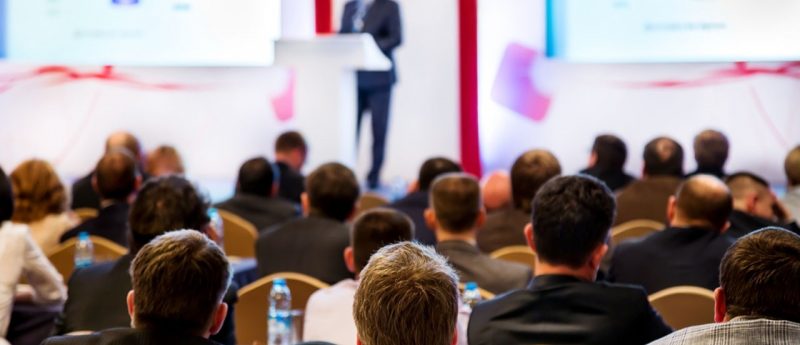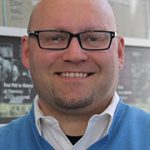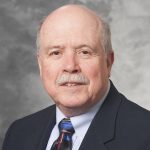Interview with Erik Burns and Jim De Muth on the upcoming Land O’ Lake conference

In this podcast, we speak with Erik Burns and Jim De Muth to find out more about the upcoming 18th annual Land O’Lake Bioanalytical Conference (10th – 13th July) held at the University of Wisconsin-Madison (WI, USA). Here Erik and Jim discuss the origins of this conference, what attendees can expect and most importantly why you should attend!
To register for this conference click here
Erik Burns, Ed.D. is the chair of the Division of Pharmacy Professional Development, as well as the Assistant Dean of Outreach and Professional Development at the University of Wisconsin-Madison School of Pharmacy. His primary responsibilities are the development, implementation and evaluation of multi-format continuing education offerings for pharmacists, pharmacy technicians, and individuals in the pharmaceutical industry.
His research interests include learner perceptions of educational value in relation to their careers and the use of technology in continuing distance education and professional development.
James E. De Muth, Ph.D., R.Ph. is a professor emeritus in the School of Pharmacy at the University of Wisconsin-Madison. He received the B.S. in Pharmacy degree from Drake University and the M.S. and Ph.D. degrees in Pharmacy Continuing Education from the University of Wisconsin-Madison. His primary responsibilities before retiring were the development, implementation and evaluation (relying heavily on statistical methodology) of continuing education offerings for individuals in the pharmaceutical industry and pharmacists within the United States. Dr. De Muth has authored over 60 research articles in the pharmacy and adult education literature and three editions of Basic Statistics and Pharmaceutical Statistical Applications (CRC Press). He has taught over 175 statistical short courses in the United States, Canada, Western Europe, India, the Middle East, Brazil and China. For 25 years he served as the statistician on the Institutional Review Board of Covance Laboratories. Dr. De Muth has received the 1993 Rufus A. Lyman Award for most notable original research and/or scholarly work published in the American Journal of Pharmaceutical Education, 2000 William A. Blockstein Award from the American Association of Colleges of Pharmacy for contributions to the field of continuing pharmaceutical education, 2010 United States Pharmacopeia Award for Outstanding Contributions to the USP Standards-Setting Process, and 2011 Drake University College of Pharmacy and Health Sciences Alumni Achievement Award. He served as the chair of the Biostatistics Expert Committee (2000-2005), chair of General Chapters Expert Committee (2005-2010) and current chair of General Chapters-Dosage Forms Expert Committee (2010-2015, 2015-2020) for the United States Pharmacopeia/National Formulary.
Could you please tell us a little bit about yourselves?
Erik: My name is Erik Burns, I am the assistant dean of outreach and professional development at the University of Wisconsin, school of pharmacy, within the division of pharmacy professional development.
Jim: I’m Jim De Muth and I’m a professor emeritus, university of Wisconsin, school of pharmacy and basically I created the bioanalytical conference and served as director of the conference for the first 17 years.
Could you give us a bit of history of the Land of Lakes conference?
Jim: Sure, let me go back just a little bit, we actually have four Land o’ Lakes conferences, this is just one of the four. We also have a conference of R&D, pharmaceutical analysis and one on DMPK and the model that we use really started 59 years ago and the idea was to take scientists, put them in a remote environment and allow them the opportunity to get away from the laboratory and focus on science and not necessary have them worry about their daily work.
This worked very well for probably a good 50 years but all of a sudden we had a problem and that was cell phones and the internet and we started to lose people at night because they would go back to their room and spend all their free time working on the internet, going through their emails, etc. So we moved the program about 5 years ago down to Madison, on campus and we designed the program to still continue the same feel of a Land O’L akes conference, meaning, good science, great instructors but also the opportunity to meet and network with everybody that was at the conference.
We try to keep these conferences relatively small, say 100 to 150 people and again the idea is that it’s casual, it’s informal and we have a large number of coffee break, social events in the evening and we try to keep everybody together until about 7:00, 7:30 at night, and then they can go back to their rooms, listen to their cell phones and do their internet communications and again it’s worked out very well.
This particular conference actually started out as an offspring from our DMPK conference and the first annual meeting we had for the DMPK conference we had was 21 years ago and one night we sat down at the bar with a cocktail napkin and basically designed this bioanalytical conference, which finally came into fruition two years later.
And again, it still follows the Land O’ Lakes model: that it’s informal, that it’s casual and that we encourage good science and the interaction between people at the meeting.
Who should be attending the conference?
Erik: I personally believe that we see the greatest amount of impact from the early to mid-career scientists that are involved within the traditional big pharma R&D and/or the CRO space and these are the individuals that are really being focused in on the bioanalytical space, the new technologies, the new techniques that are always going to be coming at them and changing the way processes and science is actually being conducted. So I would really it’s probably the early to mid-career scientists.
Jim: I’d add to that, that basically it’s mainly pharma and CROs but also we have some academics attending and regulators. So it’s not just Pharma, not just CROs but we have a good mix of people who are involved with bioanalytical issues on a daily basis.
What can attendees expect?
Erik: I think people attending can expect a strong conference for scientists by scientists, specially geared towards practical applications that will translate to real world value once they get back to the lab.
I really think that this is a conference that is strategically built to be one that is not commercially focused, it is one that is strictly based on science, that is trying and doing a very good job of keeping everyone together, so there isn’t a track mentality where people are losing out on having to make choices on presentation A versus presentation B where they are both very good.
It’s meant to be intimate, it’s meant to be application focused, it’s meant to be interactive and it’s meant for scientists.
Jim: I might add also that if somebody goes to our website and looks at the website, the planning committee are made up of scientists who work on a daily basis. Erik and I, we’re facilitators, we’re people who are experienced in developing and facilitating conferences, but the actual content is picked by your peers. Your peers (on the committee) look at what is relevant, what is practical for this particular annual meeting and I think that’s very important in comparison to other meetings that don’t have that kind of input that we have from scientists from the field of bioanalysis.
Erik: I really think that’s an interesting point, the planning committee is made of people who are not only the leaders in the field, like Raj Dhodda, Mark Arnold, Chad Briscoe, people that are really leading that area of science, but also the problem solvers and the solution providers that are on the far more on the ground view of what organizations are going through and those people, not just the sales people, but the consultants, the ones that are really in there trying to help the organizations get over their scientific hurdles. So we have a really interesting perspective of what is actually needed in this conference to make sure that the information that is presented is staying up to date and cutting edge.
Is there going to be a particular topic area or focus for this year’s conference?
Erik: The 2017 conference is really focusing in on technologies; the real applications are going to be around the bioanalysis and the need of the bioanalysis community to either use traditional approaches for new analytical needs or the need to provide bioanalytical support new trends in the bio-pharma industries, such as oligonucleotides, gene therapy and CAR T cells. And so this is really an interesting application in how the technology plays a role in that and in helping institutions and organizations as well as the individual, whether they are the scientist or the researcher, pick their path and find the right tool to help support their scientific endeavors.
Besides the conference, what’s the best thing to do around Madison?
Erik: Well the conference is right down town Madison, which if you’ve ever been to Madison is really comprised of the campus as well as the capital. The campus is where we’re going to be holding the conference, so we’re right there on State street, so there’s always some energy to the evenings as well as during the day at the conference. There is an ability for collaboration, whether it be internal or external to the conference facility and I guess the big thing is you can go out and have a beer, have a drink wherever you like. We have gorgeous lakes around us that are not short of a view and in addition to all that there is wonderful walking, running and biking trails and finally a big draw historically to the land o’ lakes conference has been golf and we do have opportunities to have some gold outings, there is the golf tournament that Dr De Muth is putting on every year.
Jim: To expand on that, it’s a great city to explore. Erik mentioned the State capital that is about a quarter of a mile away from our particular meeting place. We’re right on the edge of campus, so campus is a very beautiful campus with two miles of lake front, we have three lakes within the city. Madison is known for it’s biking trails, it’s a bike friendly environment, it’s very easy to ride a bike and ride around Madison. Usually Madison winds up near the top of almost any survey that’s done as far a good place to be for young professionals, as well as a good place to retire. I’m trying to think what journal it was in, but it was listed as the number one place for people to retire, they obviously did not do that in Madison in February when it snows and it’s cold. But because of the health care, the diversity of the population, it is a great town to visit and I’d really encourage people to come and join us.
For more information about the 18th Annual Land O’ Lakes Bioanalytical Conference click here


